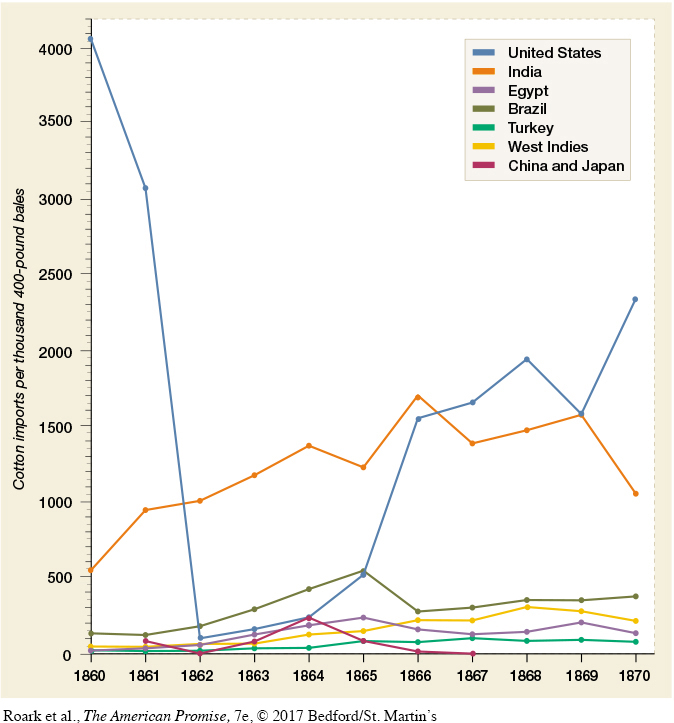The American Promise: Printed Page 417
The American Promise, Value Edition: Printed Page 382
The American Promise: A Concise History: Printed Page 436
International Diplomacy
What the Confederates could not achieve on the seas, they sought to achieve through international diplomacy. They based their hope for European intervention on King Cotton. In theory, cotton-
The American Promise: Printed Page 417
The American Promise, Value Edition: Printed Page 382
The American Promise: A Concise History: Printed Page 436
Page 418King Cotton diplomacy failed for several reasons. A bumper cotton crop in 1860 meant that the warehouses of British textile manufacturers bulged with surplus cotton throughout 1861. In 1862, when a cotton shortage did occur, European manufacturers found new sources in India, Egypt, and elsewhere (Figure 15.2). In addition, the development of a brisk trade between the Union and Britain—

Europe’s temptation to intervene disappeared for good in 1862. Union military successes in the West made Britain and France think twice about linking their fates to the struggling Confederacy. Moreover, in September 1862, Lincoln announced a new policy that made an alliance with the Confederacy an alliance with slavery—
REVIEW After a year and a half of fighting, who had the advantage in the war?